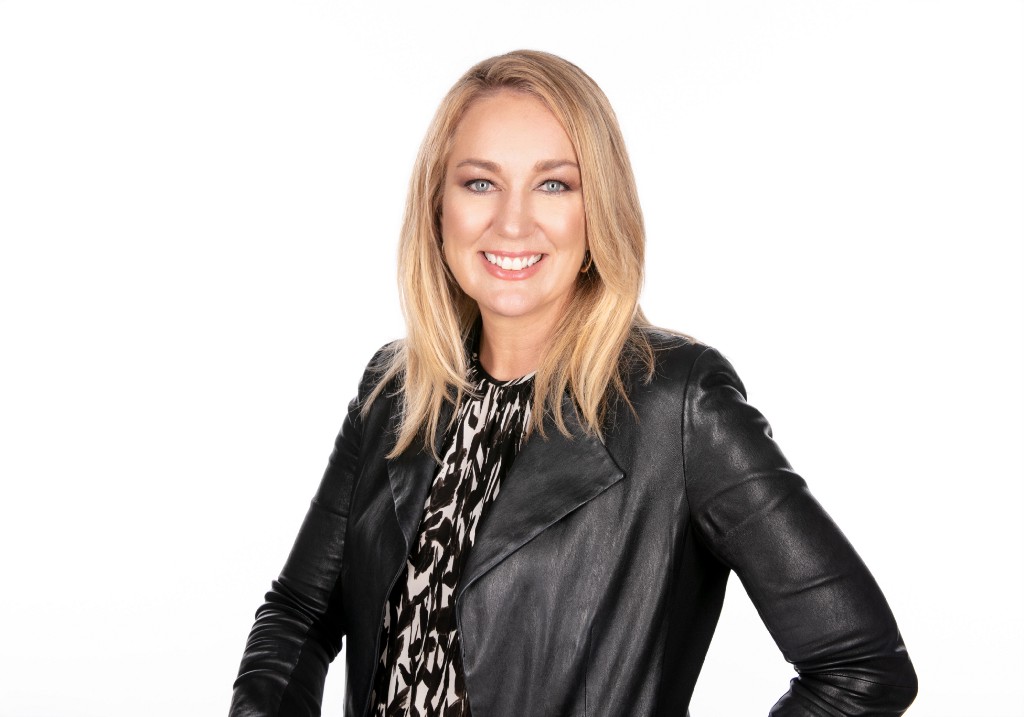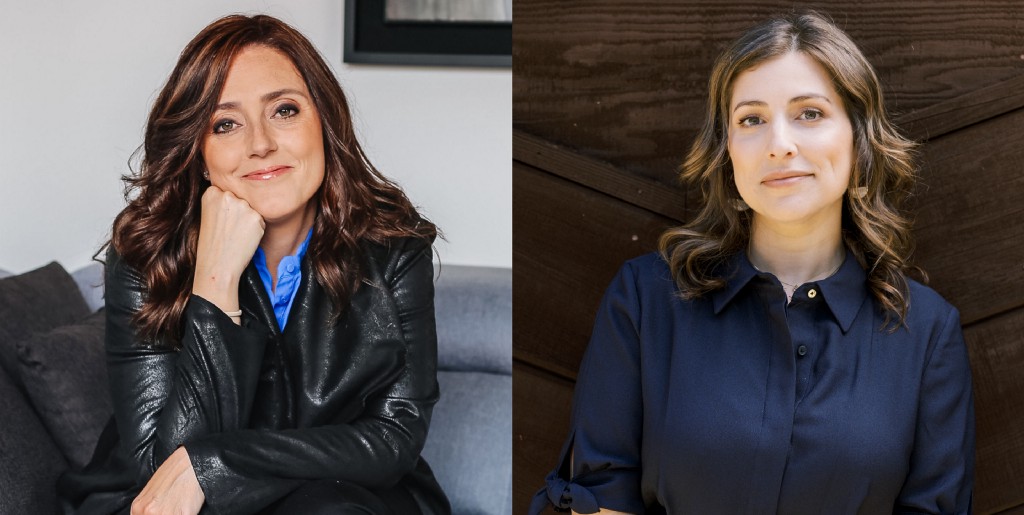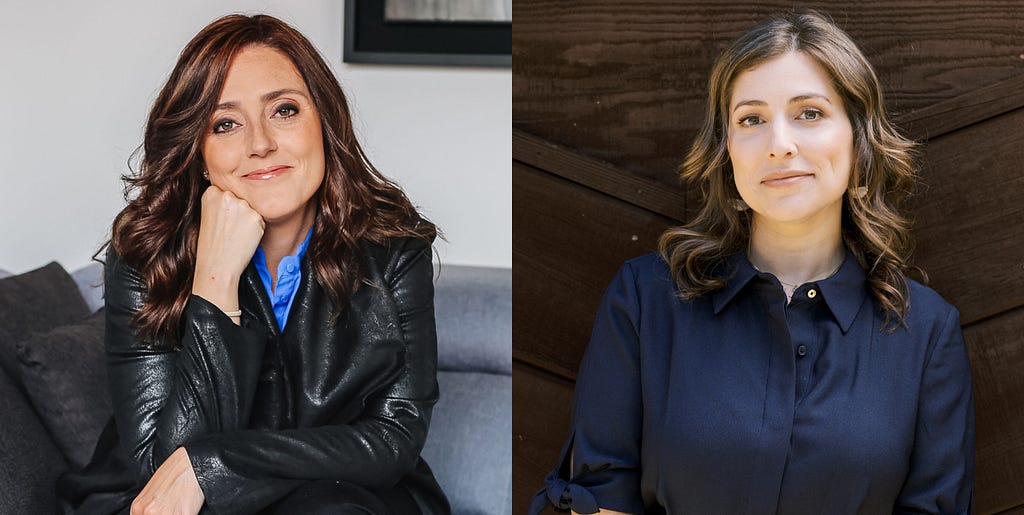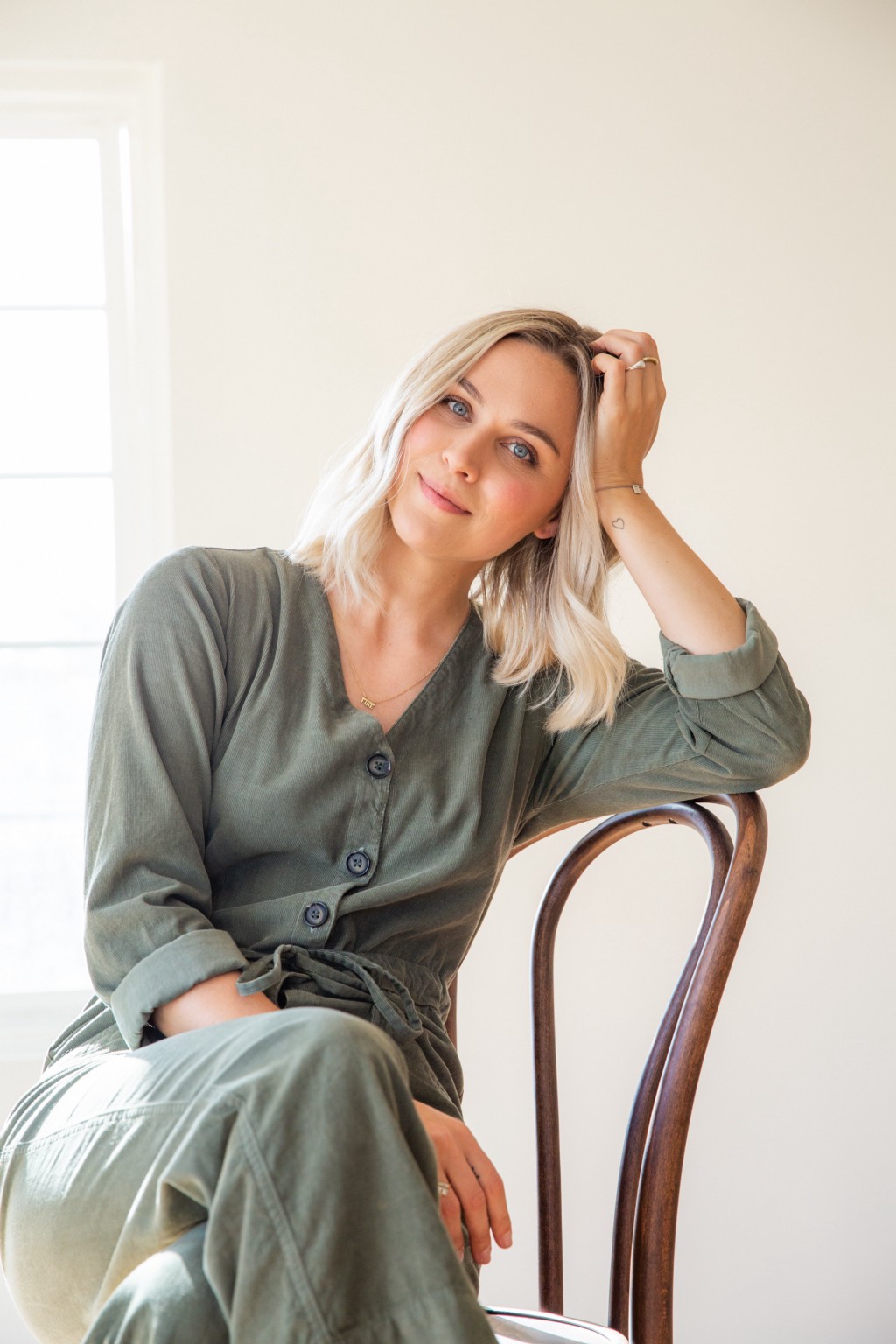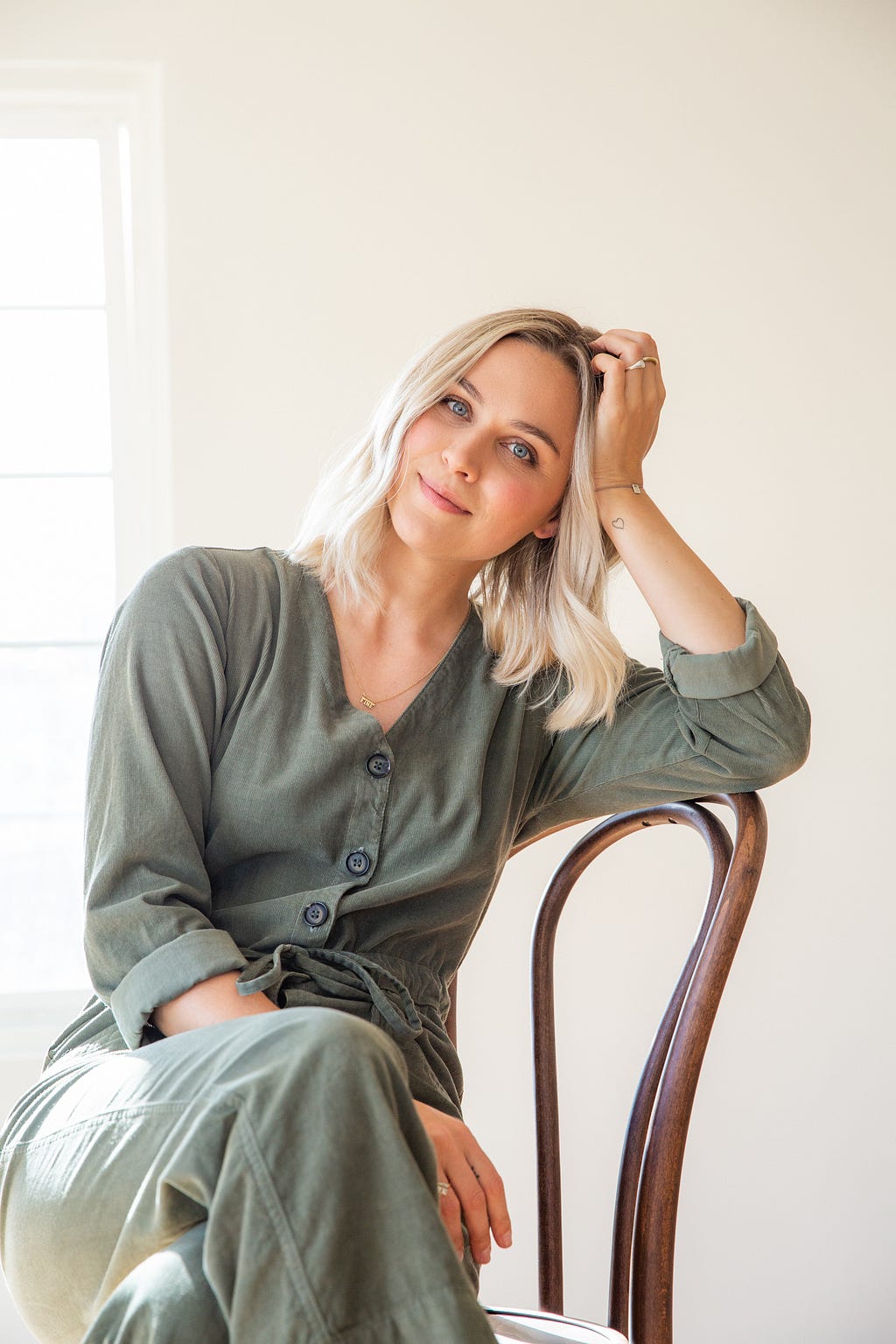An Interview With Candice Georgiadis
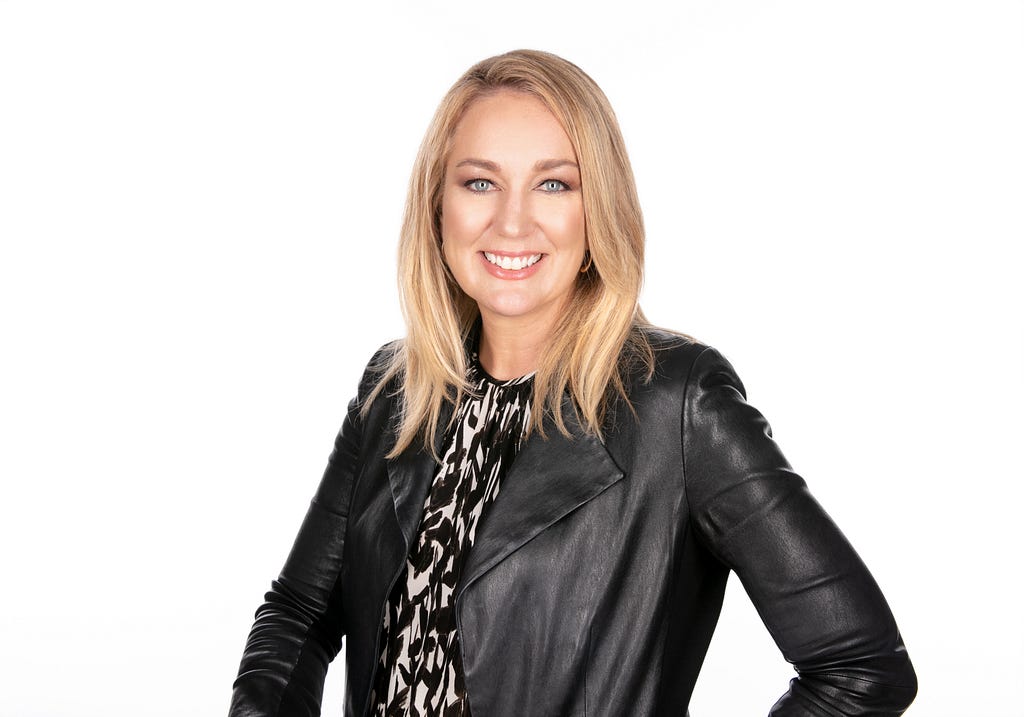
Build high impact teams that are focused on outcomes, not features. If you structure around features, you continue to perpetuate features whether they are awesome or not.
As a part of our series about women who are shaking things up in their industry, I had the pleasure of interviewing Joanna Lambert, President and GM of Consumer, Yahoo.
New York-based Joanna Lambert is responsible for driving business strategy and growth priorities across Yahoo’s consumer portfolio of properties including Yahoo Mail, commerce, sports and finance products, engaging its 900 million unique global viewers per month. Joanna joined in 2018 as general manager, overseeing strategy and operations of various brands including Yahoo Finance, Tech Crunch, Engadget and Autoblog as well as leading member services. Currently, she also oversees Yahoo’s immersive content and innovation efforts including an NFT experience in collaboration with Rebecca Minkoff at New York Fashion Week.
Prior to Yahoo, Joanna led consumer financial services at Paypal with a mission to democratize financial services for millions of people worldwide. Before PayPal, she was Chief Product Officer and head Operational Excellence for a division at American Express focused on next-gen banking solutions. Joanna holds a Bachelor of Business from Queensland University of Technology in Australia.
Thank you so much for doing this with us! Before we dig in, our readers would like to get to know you a bit more. Can you tell us a bit about your “backstory”? What led you to this particular career path?
I started my career in corporate communications in Australia. An opportunity with American Express led me to move to the U.S. with my family and we now live in New York City. I was very fortunate at American Express to gain different experiences and move into the business side of the company where I focused on product, strategy, development and design. It was here that I really developed my passion for developing purpose driven, digital consumer products. I then moved to a role leading consumer financial solutions at Paypal.
Working with two of the biggest financial companies was a great experience, but when the opportunity came to work at Yahoo, I could not turn it down. The opportunity to lead one of the world’s largest, trusted sources of content and product on the internet, and the challenge to expand into new industries was very exciting.
Can you tell our readers what it is about the work you’re doing that’s disruptive?
Over the past 18–24 months, Yahoo has been focused on laying the foundation and building a mobile forward, next generation platform that not only provides users with news and information, but immerses them in the content they consume by really thinking about a 360 experience for consumers and fans across categories like News, Sports and Finance. We have seen our Gen Z audience grow and have risen to become the fifth-largest company in the US for Gen Z in terms of reach, now reaching almost two thirds (68%) of Gen Z audiences in the US. With this growth we have been focused on TikTok as we know this is a platform predominantly used by this age group and keen to ensure we are creating relevant content that reaches younger audiences.. We knew we could be a differentiator on TikTok as a place for younger audiences to access trusted content. Yahoo News was an early breakout success on TikTok, growing to 1.7 million followers in less than two years and setting the standard for how news organizations can inform audiences and successfully create hard news content on the platform.
With the rapid growth of our followers, our Yahoo News TikTok has tapped into an audience of users who are well-versed with new technology, likely skew younger and are actively engaged. Establishing ourselves as an unbiased, trusted brand for timely, accurate news, particularly politics and breaking news, is valuable to our growth, particularly among a younger demographic. Our strategy has really resonated with our audience. In fact, Yahoo News’s recent TikTok coverage of the Ukraine-Russia conflict has resulted in over 10M views, with over 295K unique users tuning in to live streams in just one week and engaging in posts for breaking news, explainers and human interest posts. We added 20K new followers to our TikTok audience and that’s just the start.
Yahoo has also been focused on building an incredible immersive production house and platform, which is renowned for its groundbreaking technology. In February this year, Yahoo partnered with Maisie Schloss, Gen Z fashion prodigy and apprentice to Kanye West, and her label, Maisie Wilen, to present her Fall-Winter 2022 collection to the fashion industry as a digital-first immersive experience at New York Fashion Week (NYFW). Yahoo’s vision for NYFW was to design a digital shopping experience that spoke to the next generation of fashion fans whose wardrobe is made for both the digital and real world, understanding that Gen Z is highly into fashion and curious about the metaverse. The pandemic has increased the desire for a combination of both digital and physical engagement and Yahoo’s industry-leading technology and creativity helped Maisie Schloss to reimagine the consumer journey for her fans by immersing them in the collection, deepening that connection with an experience that made her collection feel fun and cutting-edge.
Can you share a story about the funniest mistake you made when you were first starting? Can you tell us what lesson you learned from that?
Yes, I was trying to hold it together as a new mother, while my husband was away at sea with the Australian Navy and working full-time in corporate affairs at a financial services company. It was my first interstate business trip and I assumed it would be easy. On the afternoon of travel, I leave work, pick up my daughter from daycare and find her sitting in a plastic highchair covered head to toe in green paint after having a fabulous time finger painting. It sounds silly now but at the time I was so stressed out and super concerned about missing the flight, taking a green baby on the plane and being judged by everybody on the way.
The lesson was living through the moment and realizing this was not within my control. You can’t control everything and when stuff happens, stay calm and do what you can. Looking back, I was way too focused on what people might think and put unnecessary additional pressure on myself. Now, when I am coaching new parents I find stories like these really resonate and they appreciate the need to be zen in uncontrollable moments and forget what others think. By the way — today I remember the feelings and the pressure and the stress of that day, but I could not recall what the business meeting I was traveling to was about.
We all need a little help along the journey. Who have been some of your mentors? Can you share a story about how they made an impact?
I have several amazing mentors and sponsors that have helped challenge me to step outside of my comfort zone, advocate for me to try new positions or roles that I hadn’t done before, and were willing to put their brand and reputation on the line to take a chance on me. It has been a combination of people who I have worked closely with who were willing to be advocates and sponsors, as well as people who I worked to build relationships with who provide great external advice. My sponsors or mentors were catalysts that led my move from Sydney to New York City and who led my decision to shift my career focus from Corporate Communications and Financial Relations to being deep in the business of building and growing consumer products at scale.
In today’s parlance, being disruptive is usually a positive adjective. But is disrupting always good? When do we say the converse, that a system or structure has ‘withstood the test of time’? Can you articulate to our readers when disrupting an industry is positive, and when disrupting an industry is ‘not so positive’? Can you share some examples of what you mean?
Put the customer first and focus on the overall mission to serve them and then determine the ratio of disruption and new ideas to challenging and fixing the status quo of long standing platforms and products.
An example from the pandemic was our Yahoo Finance team noticing a trend of young consumers turning to social media to learn about cryptocurrency like Bitcoin and Ethereum, which is inundated with inaccurate financial information. These new investors are arming themselves with information and taking a nontraditional approach to their investment strategies, moving away from legacy stocks in favor of crypto and meme stocks. We offered a fresh perspective on money management and innovative tools to help these younger consumers navigate their finances. Given it is Finance Literary Month, Yahoo Finance is focused on doubling down on our trusted platform with news and information to help our readers make smart financial decisions, while showcasing and providing information on new asset classes like cryptocurrencies. We also are committed to serving our audience for the current tax season and will provide our Tax Day special on April 12.
Can you share 3 of the best words of advice you’ve gotten along your journey? Please give a story or example for each.
- Build high impact teams that are focused on outcomes, not features. If you structure around features, you continue to perpetuate features whether they are awesome or not.
- Don’t just manage up and don’t just manage your team, make sure you really build your network and relationships with your peers and cross-functional colleagues because that’s the most important thing.
- We are sometimes bound by what we know and our perspective. Get outside your frame of reference and push yourself beyond what is familiar to you. This is why diversity is so important, it helps teams to consider issues from different perspectives and step away from your day to day to identify and solve global consumer opportunities.
We are sure you aren’t done. How are you going to shake things up next?
We have been disrupting the financial, media and tech spaces for over 20 years and certainly not done yet! We are focused on continuing to innovate and create experiences that really resonate with the youth zeitgeist as we continue to see strong growth with Gen Z. We are constantly thinking about how we can create formats for future generations and how best we can help brands connect to their consumers. We see tremendous opportunities to bring emerging technology to all our Yahoo brands. Right now, we are doubling down on our strategy to keep growing our Gen Z audience ensuring we are creating content and immersive experiences that help inform and engage. Watch this space!
In your opinion, what are the biggest challenges faced by ‘women disruptors’ that aren’t typically faced by their male counterparts?
As someone who has worked in the financial and technology industries for many years, I have been accustomed to seeing very few women leaders at the table. According to a recent study, as career levels in finance rise, female representation declines, with only 18% of women holding executive-level positions. We have all heard of the ‘confidence gap’ in women and being a disruptor needs confidence and a huge amount of self belief. Not all decisions are going to be popular at first as disruption means change. I have followed the advice of many great leaders I respect, including:
1) Be willing to take risks and step outside your comfort zone, that is when what seems impossible becomes possible.
2) Make sure you share with your leader, your sponsors, your network and your peers what you are trying to do and ask for help.
3) Do the groundwork and gain support *before* the presentation or boardroom meeting. I have observed that a lot of colleagues are really good at pre-briefing and socializing concepts ahead of the decision-making meeting, whereas others are so focused on perfecting their presentation and materials that they miss this vital and very persuasive step.
Do you have a book/podcast/talk that’s had a deep impact on your thinking? Can you share a story with us?
I love podcasts and listen to the full range from storytelling to news to motivation and meditation. Particularly in the last few years, podcasts have been a source of escapism and motivation while working from home. A favorite of mine is actually someone who we have partnered with on a few occasions and I went on the podcast last year — “Super Women” with Rebecca Minkoff. There are some really interesting conversations with such a diverse range of inspirational women. I also really enjoyed recording the show as it was the first time I had spoken on a podcast, and thought it was so interesting having a long conversation about topics that you care about deeply about.
When I want to hear more about current affairs I really enjoy listening to The New Yorker’s “Radio Hour” and then of course, for finance, Yahoo Finance Daily.
You are a person of great influence. If you could inspire a movement that would bring the most amount of good to the most amount of people, what would that be? You never know what your idea can trigger. 🙂
Set an intention every morning for the day and just do it. Change and transformation does not happen overnight — whether it is personal, professional or societal. Breaking down what your goal or aspiration is into daily manageable steps forward can help you overcome procrastination, stop feeling overwhelmed, and make progress towards your goals.
At Yahoo, we are focused on delivering trusted content and product experiences to our global audience. In 2020, when we shifted to work from home across our editorial, product and engineering teams, having a consumer centric mission was critical. Setting daily intentions across the team helped us make monumental shifts from producing live events to online segments, shifting in studio production to producing real-time from our living rooms, through to pivoting our entire product roadmap to support the shifting needs of consumers globally. We all adapted to new ways to work, shop, socialize and our physical and mental health.
This was very inspiring. Thank you so much for joining us!
Female Disruptors: Yahoo’s Joanna Lambert On The Three Things You Need To Shake Up Your Industry was originally published in Authority Magazine on Medium, where people are continuing the conversation by highlighting and responding to this story.


